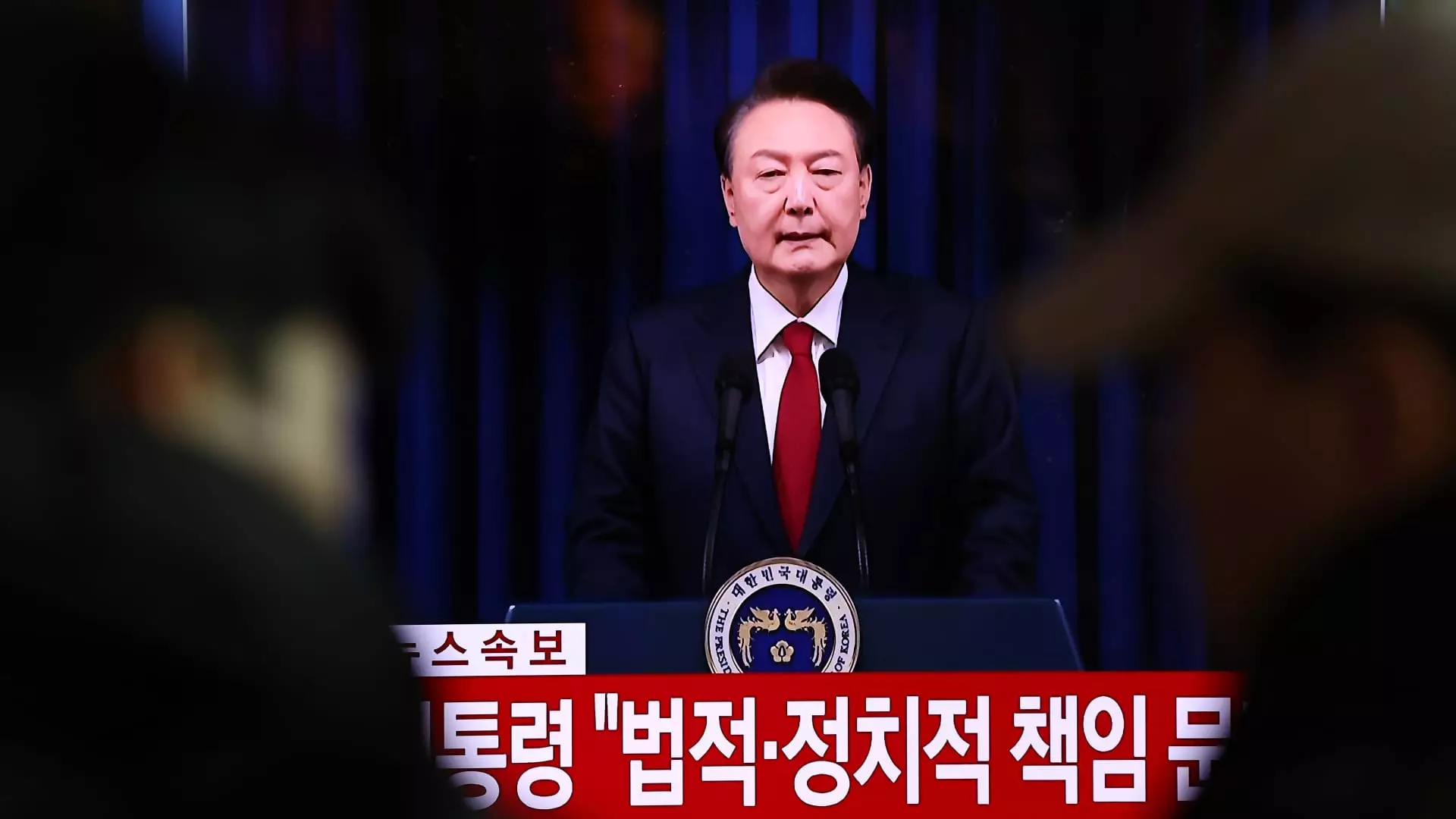In a significant and tumultuous development for South Korea, President Yoon Suk Yeol was impeached on Saturday, marking a pivotal moment in the country’s political landscape. The impeachment vote stemmed from widespread discontent following Yoon’s controversial attempt to impose martial law earlier in December. Yoon’s fleeting declaration aimed to address certain threats to the constitutional order, but it ignited a firestorm of criticism and protests, prompting opposition lawmakers to ignite the call for his impeachment. With a requirement to hold a presidential election within 60 days of an incumbent’s dismissal or resignation, South Korea now finds itself on the precipice of an uncertain political future.
This latest impeachment is not an isolated incident. Yoon’s first impeachment attempt on December 7 faltered when the necessary 200 votes were not secured, primarily because members of the ruling People Power Party (PPP) exited the vote. However, a discernible shift occurred this past Thursday, when the PPP’s leadership began to support impeachment through direct calls for an ethics review of Yoon’s leadership. This shift in party dynamics illustrates the fragility of political alliances in South Korea and hints at deeper schisms within the ruling party.
The catalyst for Yoon’s political downfall was rooted in his December 3 announcement of a temporary martial law, which didn’t even last six hours but nonetheless raised alarm over its implications. By invoking martial law, Yoon aimed to confront alleged pro-North Korea groups which he accused of compromising the freedoms and happiness of the South Korean populace. Such a move harkens back to South Korea’s authoritarian past, which many citizens are keen to avoid. This alarmingly high-handed maneuver surpassed constitutional boundaries, prompting protests and warnings of a potential second attempt at a national martial law, plunging the nation into a crisis that questioned its democratic integrity.
Critics have highlighted the danger of Yoon’s rhetoric and actions, painting him as disconnected from the sentiments of an electorate that is wary of any display of authoritarianism. His approval ratings plummeted to a dismal 17.3% following the martial law announcement, reflecting widespread dissatisfaction with his governance. These figures underscore the imperative for leaders to remain attuned to the political pulse of their constituents, especially in a democracy with a complex history like South Korea.
A History of Impeachment in South Korea
The current political predicament is not unprecedented in South Korean history. The country has seen a pattern of presidents facing impeachment, notably Roh Moo-hyun in 2004 and Park Geun-hye in 2016, both of whom were ultimately ousted following similar political strife. The cyclical nature of these events raises questions about the broader political culture in South Korea, which has oscillated between democratic aspirations and authoritarian impulses.
Yoon’s responses to the rising opposition have been marked by defiance—a characteristic he displayed in a recent national address. His insistence on fighting “to the end” signifies not only his determination to remain in power but potentially his disconnect from the realities of public discontent. The ongoing volatility within South Korea’s political framework sends ripples through its economy, leading analysts to express concerns about the potential for long-term instability.
The political turmoil has reverberated through South Korean markets, causing fluctuations that alarmed investors. The Immediate response to Yoon’s actions raised fears concerning the stability of Asia’s fourth-largest economy, but some analysts are now suggesting a more optimistic outlook. Despite the chaos, observers are adjusting their focus back to local earnings, indicating confidence in the country’s underlying economic resilience.
The technology sector, including semiconductor and artificial intelligence industries, remains a critical driver of South Korea’s economic growth, with the International Monetary Fund projecting a 2.5% expansion in 2023. This resilience suggests that while political crises can cause short-term disruptions, fundamental economic strengths can foster recovery once the political environment stabilizes.
While Yoon’s impeachment highlights the tensions within South Korea’s political landscape, it simultaneously opens a dialogue about the responsibility leaders hold to maintain the democratic ideals of their constituents. As South Korea navigates through this turbulent period, its citizens look toward a future that upholds those values while seeking economic stability amidst political uncertainty.


Leave a Reply